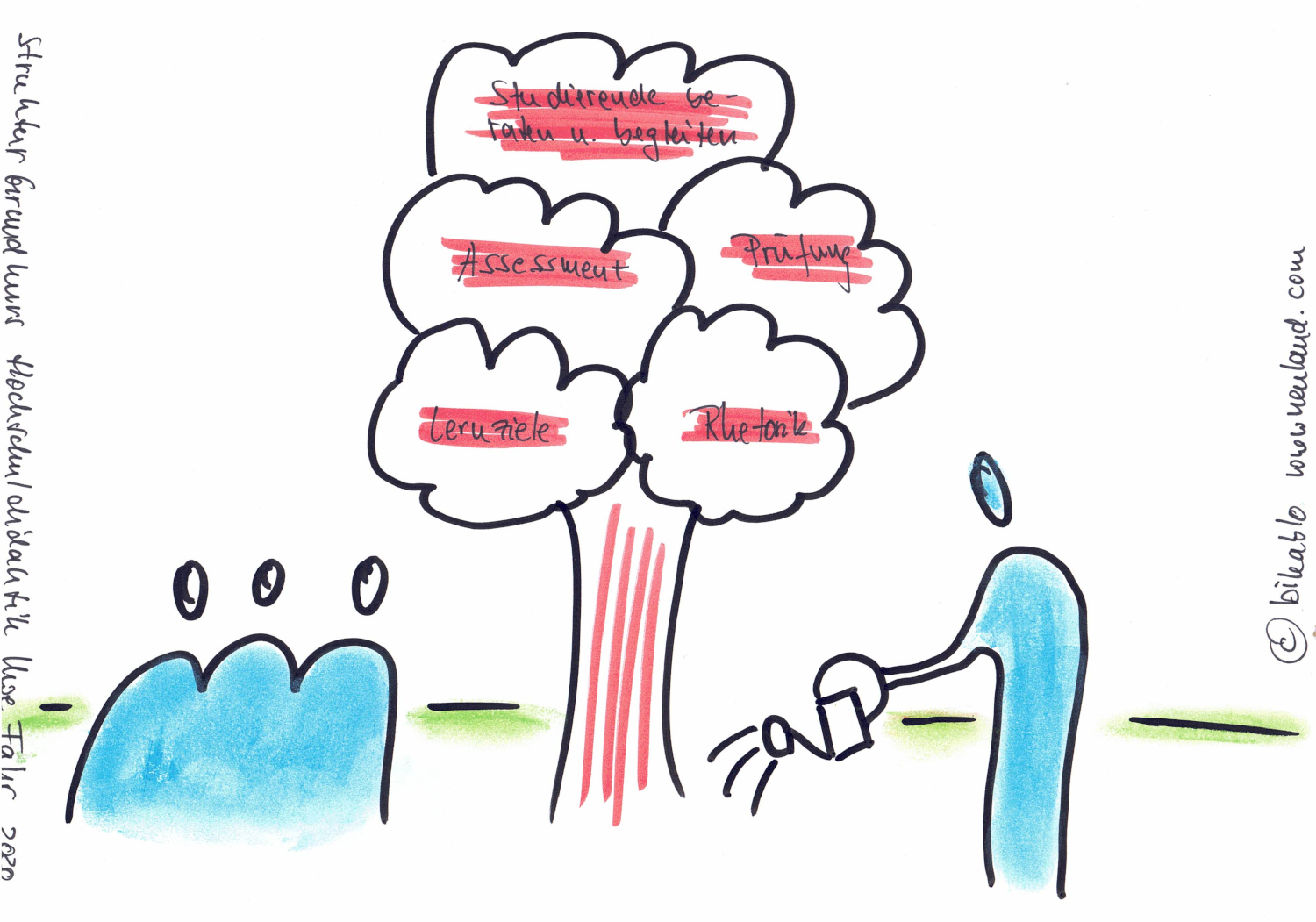I have been working on the basic course in higher education didactics since 2016, when I began to design a course that would teach the basics of higher education didactics from a practice-oriented perspective. Since then, the course has developed continuously and we have accompanied the course with research.
What is the content?
The basic course in higher education didactics imparts basic knowledge. This includes, in particular, didactic models, rhetoric, assessment of study status and evaluation of the course, the most important aspects of examinations at higher education institutions as well as counselling and support for students. All this is done in a way that is geared towards practical application. Above all, participants should learn how to plan and design teaching at universities. In doing so, they should take the various aspects into account. At the end of the course, a coherent concept for a course should be developed.
A special feature of the course is the role of rhetoric. Since the most important medium of teaching is language, the findings of rhetoric will be dealt with in the course. How can complex results of science as well as its methodology be put into a language that makes the matter itself transparent? Following the rhetorical research on science, rhetoric will not be trivialised. The focus is not on tips and tricks for the lecture, but on the hard rhetorical work in the run-up to the lecture.
The participation of the participants is high. They can always work on and develop their teaching in various forms.
And research?
The course is accompanied by continuous research. We try to understand what it means to learn university didactics. And how you actually do it. Because it’s not so much about cognitive content, but rather about action knowledge. To do this, you have to develop a lot of power of judgement. We do this in the team of the continuing education centre. From 2017 to 2019, Ramona Zacherl in particular supported me in this.
That’s why we sometimes try to understand more about the change processes that can be triggered by such a course. After all, it is also about taking on many different perspectives. Self-perception and external perception are compared when teachers are observed by other teachers. Or they learn how to look at their own teaching from the students’ perspective. Or they get to know completely different study cultures when they are observing in completely different faculties.
We also try to understand how long the participants stay at the university. This has a lot to do with the question of sustainability. And we try to understand what motivations they bring with them, whether they participate voluntarily or not, and what the consequences are.
All of this is understood as a development project in the sense of the so-called designbased research approach. Contents, forms, methods and media are constantly being developed and tested again and again. Recognising development potential, realising possibilities for improvement and adapting the course to changing social conditions are thus a natural part of the course.
I have been able to present some of these results at the conferences of the German Society for University Didactics in recent years. Others have already been published or are finding their way into the public domain.
What inspires me
In this course I can combine very different interests. First and foremost, I can work with many interesting people on didactic topics. Then I can also deal intensively with current developments, especially in terms of content. And finally, I can pursue my research interests on different levels. That makes the course very exciting for me. And when I listen to the feedback, the participants also enjoy the course.
Publications and presentations
Fahr, U; Ramona, Zacherl: Hochschullehre und Reflexion. Ein multimodales Lehr-Lern-Konzept am Beispiel eines Hochschuldidaktik-Kurses. In: Kritische Hochschullehre. Impulse für eine innovative Lehr- und Lernkultur. – Diversität und Bildung im digitalen Zeitalter. Hrsg.: Dirk Jahn, Alessandra Kenner, David Kergel, et al. (2019)
Transformative Hochschuldidaktik. Zur Erforschung der Veränderungsprozesse der Lehrpersönlichkeit. Uwe Fahr , Ramona Zacherl; 49. Jahrestagung der Deutschen Gesellschaft für Hochschuldidaktik. 10. bis 13. März 2020.
Reflexionsfähigkeit in hochschuldidaktischen Weiterbildungen fördern: Eine qualitative Studie. Uwe Fahr, Ramona Zacherl. 48. Jahrestagung der Deutschen Gesellschaft für Hochschuldidaktik. Leipzig, 2019.
